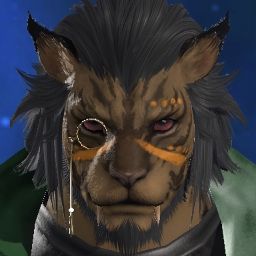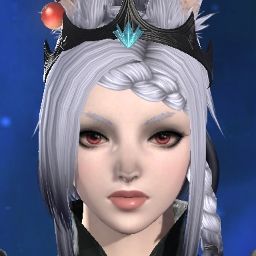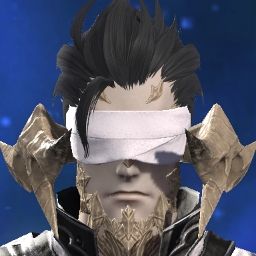I think you're forgetting that, in context, the Scions are fighting for the right to continue to that inevitable doomed end, and the one presenting those scenarios is Meteion, with the intent of proving the futility of all life.
We also only actually got one society that failed to achieve perfection in the Dead Ends. The first one we encounter was pretty alright until a completely random, widespread tragedy wiped them out. (Well, technically it left them in despair and Meteion decided it would be ethical finish the job). The second failed to reconcile the differences between themselves, ultimately splitting into two factions and ending their world in war. (Again, not entirely, Meteion simply decided to finish the job.) Only the last one achieved "perfection," and even then, you can pan the camera down and see that their world was destroyed getting to that point. (The problem here was actually that they had decided they had reached a stopping point, not that a true stopping point actually existed. Again again, Meteion took that desire for oblivion as consensus and wiped out the planet.)
Meiteion's premise was that continuing to live would inevitably mean encountering some wall that could not be overcome, therefore life itself was meaningless. The Scions' answer was simply, "We know." Everything Venat did was done to get a group of people in front of Meteion to deliver that incredibly simple answer.
So... Nihilism 101.
I approve of this combination.
/wave
This was fun. We should do it again when the story gives us a new existential crisis to chew on.
-
08-04-2022 09:35 PM #761(6)あっきれた。
-
08-04-2022 09:48 PM #762Player

- Join Date
- Mar 2022
- Posts
- 655
- Character
- Victoria Crowny
- World
- Hyperion
- Main Class
- Black Mage Lv 90
But again, the story creates a very muddy area around the line between "be content with what you have" and "make the world better even if it can't be perfect". I understand that you, and several others, want to give the text the benefit of the doubt and assume that it aspires more to the latter than the former, but the problem is that the way the narrative is muddied gives the former more credibility than it deserves as well.
That's not the point. The point is that the story wants to make the argument that some achievements are impossible, while also presenting us with societies that have achieved actually impossible achievements to point at and say, "See, they did this impossible feat and now they're miserable for it". Again, you can't have it both ways.
That's Meaning 1, then. You can't have infinite perfection AND be limited.
The issue is that "specific forms of suffering can be good in controlled doses" is not the same as "suffering is good".
Your question is impossible answer without nuance, because "better off" could mean anything.
That's not what Y'shtola says. Y'shtola says "I'll catch the car for myself anyway". Again, she doesn't disagree with anything the Ea says or offer an alternative -- she just says "I think knowing for myself is fine".
Again, the fallacy of the Ea is the same "absolute, infinite authority" issue. Like the Ancients and the Plenty, they are touted as being all-powerful in whatever subject matter they're dealing with.(5)Last edited by CrownySuccubus; 08-04-2022 at 11:19 PM.
-
08-04-2022 09:57 PM #763Player

- Join Date
- Mar 2022
- Posts
- 655
- Character
- Victoria Crowny
- World
- Hyperion
- Main Class
- Black Mage Lv 90
Which is exactly the problem with the Plenty; it's an argument of semantics. They "eliminated all sorrow and strife", but didn't notice that they also eliminated joy as well. The plot does not treat THIS as a form of "sorrow and strife" to work toward eliminating as well.
That's exactly the problem here. Any form of "perfection" or "all" does not exist in reality, and thus is semantically defined by whatever the writers choose. If you tell me that a society of wise, all-powerful aliens "got rid of all suffering and strife", but then began to suffer because they forgot they got rid of joy, too, I'd argue "So why didn't they just get rid of THAT, too"? If the response is, "because they realized it was impossible, then my second response is, "Then the premise doesn't work. They're killing themselves because they can't find any suffering or strife to create joy from, despite that being a form of suffering and strife".(6)
-
08-04-2022 11:26 PM #764
I never read the Plenty as people who were "suffering". They seemed quite content with thier static, unchanging existance. It was only when reintroduced to the concept of death by Meteion that they decided that they might as well peacefully and blissfully move on.
It's essentially the concept that the Ancients had of returning to the star when thier purpose in life was fufilled, applied to an entire society. Which is "always beautiful" according to the cultural values of the Ancients.
The way I saw the plenty was not Meteion trying to convince us that suffering is inescapable because these aliens in robes got bored, but that even a race that has achieved perfection and tranquility in life will end up choosing the sweet embrace of death, after all, isn't it always beautiful? Look at how content they are and how blissfully they embrace thier end, everyone deserves that gift.(4)
-
08-04-2022 11:37 PM #765Player

- Join Date
- Mar 2022
- Posts
- 655
- Character
- Victoria Crowny
- World
- Hyperion
- Main Class
- Black Mage Lv 90
The Plenty is presented as a society that entered a catastrophic existential crisis after being questioned by an outside party. The level of horror and dissatisfaction they express, along with the profound relief they feel at being given an alternative in the form of oblivion, cannot be described in good faith as anything but "suffering".
Like, if you conclude that existence is so terrible that you can't wait for the sweet release of death, I think trying to use other words to describe it other than just "suffering" strikes me as hair-splitting.(3)
-
08-05-2022 12:19 AM #766
I don't recall the denizens of the Plenty ever expressing "horror" or having a existensial crisis. They seemed very calm and tranquil in thier existance and in thier decision to end it. The most negative thing they seemed to experience is simply "apathy".
It's important to remember that the Plenty, like all the races of Ultima Thule are being used as arguments by Meteion for why everyone should die. Meteion is the one saying that life is horrible, and the Plenty are being held up as an example of peacefully embracing death.
The challenging question is "why shouldn't they?". They have achieved everything they ever wanted to, and existed in a static, unchanging state of tranquility until Meteion offered them an alternative
Edit: To put it another way, are the ancients who decide to return to the Star after they have fufilled thier purpose in life "suffering" when they make that decision? That is the same thing as the Plenty to me but on a society-wide scale. (Incidentally that is also why I think the ancients would have struggled to dispute Meteion, in a lot of ways they actually agree with her.)(5)Last edited by KariTheFox; 08-05-2022 at 12:40 AM.
-
08-05-2022 12:54 AM #767Player

- Join Date
- Mar 2022
- Posts
- 655
- Character
- Victoria Crowny
- World
- Hyperion
- Main Class
- Black Mage Lv 90
The notes in the area are filled with emotional tones about how terrible their lives are now and how beautiful the sweet release of death is. Some of the ones we see cry out lines equivalent to "Please, Ra-La release us from this torment!". When Ra-La kills them, they're universally ecstatic and crying out "At last!" or something to that effect. It's pretty clear that they viewed their lives as such a horror that they were literally begging for them to end.
That's actually not true. Meteion is explicitly stated to be repeating the sentiments of the sentient beings she's encountered. It's they who saw life as suffering. This is especially the case for the Plenty -- Meteion never said to them that life was suffering. She just asked what they live for, and they were horrified to realize they had no answer.
The circumstances between the Ancients returning to the star and the Plenty only resemble each other in the sense that they're both "suicide". For the Ancients, returning to the star was a choice which wasn't particularly enforced, but merely normalized and celebrated. No one looked down upon Venat for choosing not to do it, for example, but she was constantly asked when she would. In the end, it was a very personal choice and up to the individual.
The Plenty, however, is filled with an entire species of people who are literally DESPERATE to die because they saw a life without suffering as one with no joy. We see no evidence of any dissenting or disagreeing opinion -- ALL of the "Deka-hepta" feel the same way.(3)Last edited by CrownySuccubus; 08-05-2022 at 01:00 AM.
-
08-05-2022 01:24 AM #768
I do not see any problem here, on the contrary I find it quite fascinating. Ultimately the sundered mankind will never reach perfection, our mortality and diversity in thought, ideology and culture will not allow it. That is why the idea that our strives for peace and comfort are in vain as we will ultimately reach a point of perfection, where we will meet our ultimate demise, doesn't sound truthful or plausible. But we are talking about mankind in the Source, and while this might be true to our existence, it might not be so for other civilizations across the vast universe who have, in their culture, reached a point of perfection from their perspective. I'm not sure that Venat ever meant to imply that her philosophy would ring true to all of existence.
Will we ever truly reach the dividing line? I doubt it, because the vast amount of different perspectives will disagree on where that line between good life and perfection that leads to collapse exists. Even the concept of '' life that is as good as it can be without the threat of what an utopia and perfection would cause to our civilization '' would vary from person to person, or at least from culture to culture.(4)
-
08-05-2022 03:06 AM #769
I disagree with the interpretation of the people of the plenty being "horrified" or "suffering" in any way. The emotional tones you say you see, I don't really read it like that. To me, it's more akin to simply being bored with life and happy to experience an alternative, not a horrible, despair-inducing existensial crisis.
It only looks like "despair" to an outsider because surely you would only embrace death because you are suffering in life, but I think it makes The Plenty more interesting and more alien if they willingly embraced thier deaths from a place of contentment and bliss, rather than outright despair.
And by "Meteion is using the races in Ultima Thule as arguments", I mean that she is presenting them in a certain order and certain perspective in order to make a point - which is something along the lines of "look at all these societies who died in suffering and despair after trying thier best, and then look at the Plenty, who died blissfully after acheiving perfection, wouldn't it be easier and better to just skip to the part where we all die?"
It's entirely possible that there were members of The Plenty's society that disagreed, or didn't want to die. But that doesn't really matter for the purposes that they are being used by Meteion for, which is to try to convince the WoL and the Scions that death is a wonderful and pleasant alternative to the suffering inherent in life.(3)
-
08-05-2022 03:16 AM #770
It's possible that Venat's primitivist ideals are correct, and that every society will inevitably be destroyed through various means in pursuit of progress. My issue with this is that it's an idea presented through a bunch of distant alien races or ancient peoples long dead, it's not a notion that actually seems to bear any serious consideration for the peoples of Eorzea. We happily go along solving everyone's problems, uniting the continent into a nu-Global Community, saving all of our friends from death instead of having to suffer their true loss, and all around being a perfect hero surrounded by perfect friends who want to mitigate suffering and progress into a brighter future in every way they possibly can.
In that sense, the story is two-faced. It presents the idea, but cheats by not having it apply to everyone, instead suggesting that somehow we're so special and unique that we've broken past those issues and found a way that isn't a "Dead End".
And maybe that's all true. Humanity fulfilling her hopes and surpassing her is something she allowed for the possibility of, but her words and her extensive plans with the moon show that it wasn't the outcome she actually expected to happen. Maybe she hoped for it, maybe her plans accounted for it, but when it happened she couldn't really believe it. Again, exactly like Emet-Selch at the end of Shadowbringers.
I'm just going to say it: The Ascians are, in essence, Venat's controlled opposition. She knew what they would do, and paved the way for their existence, while they were unknowingly acting as agents of her plans. Even if Emet-Selch hadn't come out and said this in Ultima Thule, as many people have been pointing out in this thread their proclivities towards spreading chaos and resetting civilization through great destruction every few thousand years is exactly what Venat's ideals call for.And the Ascians aren't also?!
I know your next response is going to be "But the Warriors of Light, she was trying to stop the Calamities!", and you know my response after that will be "We don't actually have evidence the WoLs ever stopped any Calamities."
Yoshida himself said that Venat working very hard behind the scenes to ensure that the timeline proceeded in accordance to how it should is a valid interpretation of events. That is my interpretation of how it all went down, that Venat intended for all of this to happen and worked to make it so. Are you going to disagree and insist that this is an invalid idea?
Emet was dead, and it was WoL that brought him there.Emet killed himself rather than live longer by Venats magic.
Venat's care for her own people was itself contingent on a subjective and ultimately meaningless test. I also disagree that Emet's empathy for mortals was contingent on passing the test, but I doubt you'll ever accede to that.To say she didn't extend the same level of empathy as Emet, whose care for us was contingent on a subjective and ultimately meaningless test, is ridiculous.
But you would kill an innocent person in exchange for the theoretical life of someone in the future.Yep, I would never kill an innocent in exchange for the life of someone I care about.
I've explained several times the nuances that show their differences. But yes, I in fact do remember quite a lot of "backlash" in ShB, threads constantly reverted into arguments about Emet and the Ascians for years. The only difference is that at that time, the puzzle wasn't complete, so the avenues for how complex and contentious the conversation could get were more limited.So treat her as Emet then. I don't remember this level of backlash to him do you?(11)Last edited by Veloran; 08-05-2022 at 03:21 AM.







 Reply With Quote
Reply With Quote










